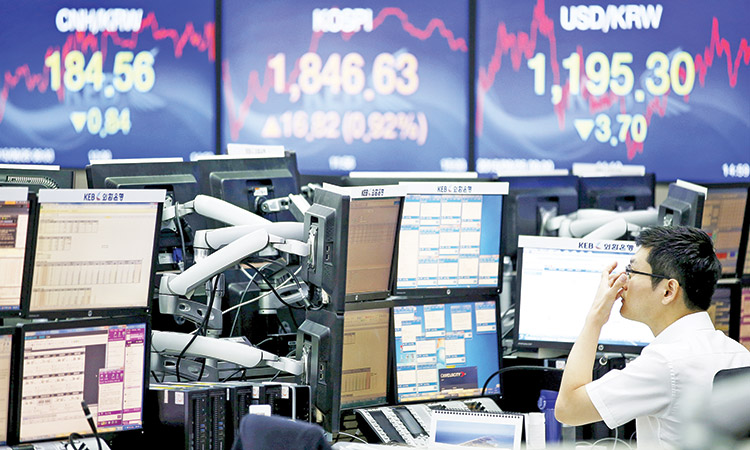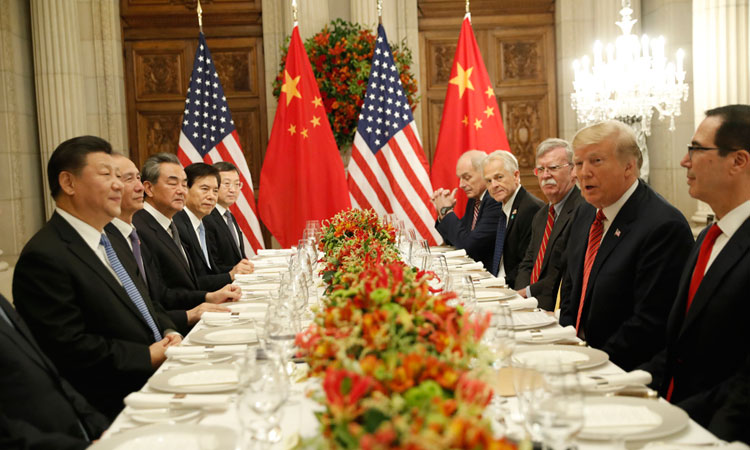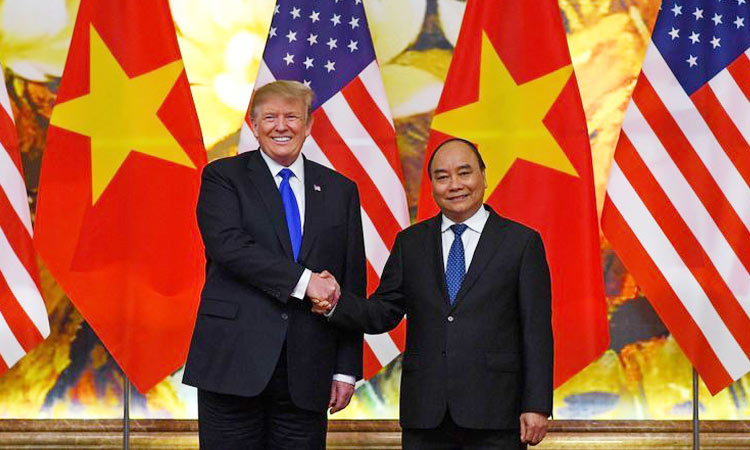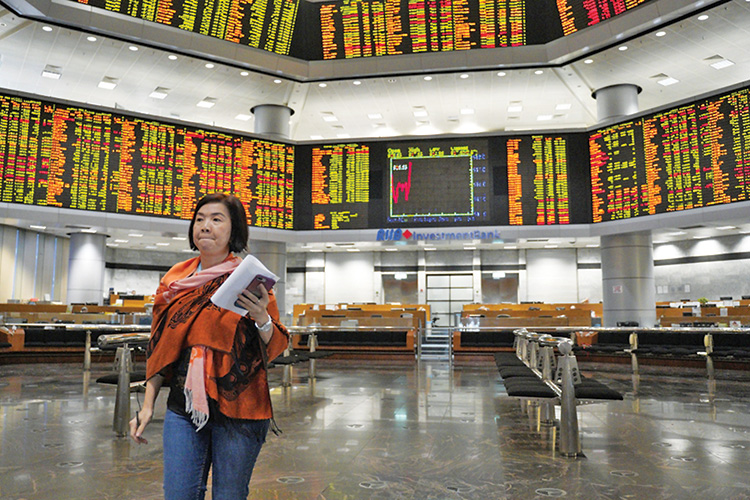Global recession fears hit stocks as China warns on metal exports

A currency dealer works in front of electronic boards showing the Korea Composite Stock Price Index on Wednesday. Reuters
Investor sentiment took a knock also as Chinese technology giant Huawei stepped up its legal battle to overturn US legislation barring American federal agencies from buying its products, as Beijing toughened its trade war stance.
«European markets are on shaky grounds... thanks to simmering trade tensions between the US and China,» said City Index analyst Fiona Cincotta, as leading European and Asian indices shed between 1.0 and 2.0 percent.
«China has started making its move on two fronts, firstly threatening to constrict the supply of its rare earth minerals to the US, and secondly, Huawei has launched a legal case in US courts arguing that the country›s decision to restrict the world›s largest network equipment maker was illegal.»
Asian equities slid Wednesday, tracking overnight losses on Wall Street as investors grew anxious about a possible economic slowdown in the absence of any progress in resolving the US-China trade spat.
Asian shares fell on Wednesday and bonds rallied as investor sentiment soured over growing worries about world growth with trade tensions between the United States and China showing no signs of easing. MSCI›s broadest index of Asia-Pacific shares outside Japan slipped 0.5% after three straight days of gains. Chinese shares started on the back foot but bounced off early losses to be marginally higher. Australian shares ended 0.7% lower while Japan›s Nikkei faltered 1.2%.
In an indication US markets will fall again on Wednesday, E-Minis for the S&P 500 stumbled 0.3%. In early European trading, the pan-region Euro Stoxx 50 futures were down 0.7% as were German DAX futures while those for London›s FTSE and France›s CAC 40 eased 0.6% each.
Risk aversion has increased globally in recent days as fears of world recession resurfaced amid disappointing macro data in major economies. Wins for eurosceptic parties in EU elections as well as a snap poll in Greece and political turmoil in Austria have added to the gloomy outlook. Italy›s dispute with the European Commission over its budget is also a major overhang for world markets.
In Asia, focus remains on the ongoing Sino-US trade war. US President Donald Trump said on Monday that Washington was not prepared to make a deal with China yet. In response, Chinese newspapers warned on Wednesday Beijing is ready to use rare earths to strike back at the United States. The tariff skirmish is not limited to China, though. Trump has also pressed Japan to reduce its trade imbalance with the United States.
The spectre of prolonged trade friction drove US 10-year yields about 10 basis points below the 3-month rates, an inversion typically seen as a leading indicator of a recession. German Bund yields are also on a slippery slope. «What I see as more consistent is that typically when the yield curve inverts you get central bank easings. So the question about recession would be would the US Fed ease enough to avoid a recession?» said Chris Rands, Sydney-based fixed income portfolio manager at Nikko Asset Management.
«My reading of what is going on at the moment is that US economic data seems to be flicking away, and the market is starting to tell us that rate cuts will eventually be coming,» Rands added. US rates futures are pricing in two cuts by the Federal Reserve by the middle of next year to help prop up the country›s economy.
Data this week showed a gauge of US manufacturing activity unexpectedly fell in May from the previous month.
That follows earlier disappointing readings on US manufacturing and industrial output, Rands added. «The fact that you have got a bit more noise around the trade war now at the same time as manufacturing is rolling over it›s getting people to think that things are a little bit worse than they had expected,» he said.
Analysts at Citi reckon punitive measures against China›s Huawei and other tech firms, as part of the tariff battle, could undermine global productivity growth.
«Technological rivalry is here to stay,» Citi analyst Johanna Chua said in a note, adding «it is hard to be constructive (on) risk assets in Asia at this juncture.» «We maintain a bias to be long US dollar-Asia...As growth is likely to significantly outweigh inflation concerns, we expect Asian central banks bias will remain on the accommodative side.» In currencies, activity was muted. The dollar index was a touch lower at 97.905 but well above a recent two-week trough of 97.547.
The euro was unchanged at $.1.1159 after two straight days of falls while the British pound held at $1.2656.
In commodity markets, oil prices were subdued on Wednesday as worries the Sino-US trade war could trigger a global economic downturn dominated, despite the risk of supply shortfall from US floods and political tensions in the Middle East.
Brent crude was last off 51 cents at $69.60 per barrel while US crude eased 62 cents to $58.52 per barrel.
Reuters







